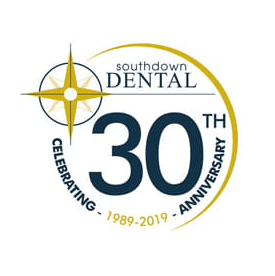
New Patients (289) 724-3005
Existing Patients (905) 822-4198
1375 Southdown Road Suite 8
Mississauga, ON L5J 2Z1
Same Day Appointment Available
FAQ's
How can cosmetic dentistry help enhance my smile?
There have been numerous advances in the field. Cosmetic dental procedures vary widely. From restoring teeth to making dramatic changes in your smile’s appearance, lots can be done. It starts by talking to the dentist about any specific concerns you have about your smile.
Cosmetic Procedures:
- Tooth Whitening: Bleaching lightens tooth yellowing or browning due to food, lifestyle, and age. Certain medications can also darken teeth. Bleaching can be very effective depending on the severity of staining.
- Composite (tooth-coloured) Fillings. Also known as bonding, composite fillings are used in fixing cavities; replacing old and worn fillings; and repairing damaged, chipped, or discoloured teeth. If you have gaps between teeth or exposed roots due to receding gums, composite fillings may also be useful.
- Porcelain Veneers. Veneers are extra thin, customized tooth-coloured shells that are placed at the front of the teeth. They improve the look of poorly shaped and discoloured teeth. Veneers require minimal scraping of the tooth’s surface.
- Porcelain Crowns or Caps. Made to look natural, crowns are used to cover a weak or damaged tooth and restore its form and size. Crowns can be used if fillings are not a suitable restoration for the tooth. If you have broken fillings, a badly decayed tooth, or a severely fractured tooth, your dentist may recommend crowns.
- Dental Implants. Dental implants serve as artificial roots inserted into the jawbone. These artificial roots provide support to the replacement tooth, porcelain crowns, bridges, and dentures. Implants provide patients with one or more missing teeth a durable and strong tooth replacement option.
- Orthodontics . Advances in dentistry allow teeth straightening to be done in more comfortable, less visible ways. Braces and wires are now more effective and you may also opt for customized, clear aligners to fix your tooth alignment. You can skip the braces and still improve how your smile looks.
What are porcelain veneers for?
Porcelain veneers are extra thin porcelain shells that are custom-made to cover the front of the teeth. They resist staining, are durable, and can be used to correct the following dental issues:
- Gaps between teeth
- Severe tooth discolouration
- Chipped, damaged, or broken teeth
- Tooth size
- Misshapen teeth
It may take two dental appointments to get your veneers done. Your dentist will take a mold of your teeth which will be sent to the dental lab. The lab creates your tooth-coloured veneers.
The procedure may require anesthesia for your teeth to be prepared and shaped to fit the veneers. Once your veneers are ready, they will be cemented to the surface of your tooth. Your dentist may use a specialized light to strengthen the bond.
You may consider dental veneers if your goal is to improve your smile, while keeping a natural look.
How much do veneers cost?
Porcelain veneers may cost around $1,400 per tooth. White fillings or composite resin are more affordable at approximately $300 per tooth, but this material is not as natural-looking. It also stains faster and will need to be replaced every few years.
These are a few of the reasons why patients prefer porcelain veneers. Although more expensive, it’s worth the investment for the longevity.
If you’d like to discover if porcelain veneers are the right option for you, please give us a call to book a consultation.
How do I get rid of staining or discolouration on my teeth?
Answer
Many patients want to whiten their teeth. Thankfully, there are various options available.
Professional tooth whitening, also called bleaching, is a simple and non-invasive way to lighten the shade of the tooth enamel. You’ll also find over-the-counter products. However, they can only do so much and may not be approved by the Canadian Dental Association.
Before you proceed, your dentist will first check whether you’re a good candidate for bleaching. Some types of stains may be difficult to remove, and your dentist may recommend another option like veneers.
Note, too, that tooth whitening only works on the natural tooth. Consider replacing old crowns or fillings before starting bleaching so you can achieve an even tooth colour. Your dentist will see to it that your new dental work is colour-matched to the new shade of your natural teeth.
Tooth whitening requires touch-ups since it’s not permanent. You may need to come back once every few years to maintain your white smile.
Here are the most common tooth whitening systems available at the dental office:
- Take-home Kits. At-home tooth whitening options are available in gel form. The gel is applied in a mouthguard that’s custom-made for you. You’ll wear the mouthguard or trays twice during the day, for about 30 minutes or while you sleep at night. It can take several weeks before the desired results are achieved. It depends on the severity of the staining and the shade you’re looking to achieve.
- In-Office Tooth Whitening. If you want faster results, this is the route you may want to consider. It can take several visits to the dental office, but each one will last for only 30 to 60 minutes. The bleaching solution will be applied to your teeth while your gums are covered for protection. Your dentist may use a special light during the process.
You may feel tooth sensitivity afterward but this should resolve within a week. This method can be very effective.
Are amalgam fillings safe?
Amalgam or silver fillings have been used as filling material for over 100 years. However, this has raised concerns in recent years because of its trace mercury content. An amalgam is a mixture of mercury, zinc, tin, silver, and copper. There have been claims that the use of mercury may lead to health issues.
The truth, though, is that we rarely use amalgam fillings anymore. This is because of the introduction of the composite resin or white filling. This filling material can be colour matched to the tooth, is durable, and is less susceptible to breakage unlike amalgam fillings.
We don’t encourage replacing amalgam fillings because of the mercury. However, if you wish to replace yours, let us know and we’ll look into it. Your dentist will be able to recommend the best filling for your needs.
Do you accept my insurance?
Most employee group insurance benefits cover services provided at our dental office in Mississauga. However, benefit plans vary from one insurance company to the next. Please verify what your policy does and does not cover with your employer or insurance provider as you will be responsible for any amount not paid by your plan. You may also provide us with your policy information on your next visit so we can assist you better.
Please note we require you to pay in full for all dental services received on the day of your appointment. We will then electronically submit your claim for you, and the insurance company usually pays you the covered portion within two weeks.
How do I get rid of bad breath?
First you need to pinpoint what’s causing your bad breath to find the best solution.
Bad Breath Causes
- Poor dental care. Food debris left in the mouth can lead to bacteria growth.
- Reduced saliva flow. The flow of saliva stops as we sleep. This translates to reduced cleansing action and increased opportunity for bacteria to multiply.
- Dry mouth. This can be due to salivary gland issues or intake of certain medicines.
- Certain food. Some foods have odor-causing compounds which enter the bloodstream. Then they move to the lungs and are exhaled.
- Food traps in your mouth. Food particles may get stuck in cavities. Poor fitting dental appliances have spaces where food may also accumulate.
- Periodontal or gum disease. Bacteria thrive on inflamed gums.
- Dieting, hunger, and missed meals. During the fat-burning process, certain chemicals are released in the breath.
- Medical conditions. Certain illnesses may also contribute to bad breath.
Ways to fight bad breath
- Drink water often. Encourage salivary flow in your mouth and wash away bacteria by drinking water more often.
- Maintain good oral hygiene habits. Be sure to brush and floss daily. Don’t forget to clean your tongue too. Replace your toothbrush every 2 to 3 months or as soon as it starts to fray. Keep removable dental appliances clean.
- Schedule regular dentist appointments. Go for regular cleanings and checkups.
- Quit smoking. Break the habit and both your oral and overall health will benefit from it.
- Use mouth rinses. Look for antiseptic mouth rinses or those that are recommended by your dentist.
Bad breath can occur even in a healthy mouth. If this is the case, your dentist may recommend that you see your physician to identify the underlying cause and prescribe an appropriate treatment.
How often do I need to brush and floss?
Regular brushing and flossing are so important in removing plaque and bacteria that can cause dental illnesses.
Tooth brushing
Brushing twice a day is crucial, especially before sleeping. Use small, circular motions when you brush your teeth and be sure to cover all areas. Clean the inside part of your front teeth using the tip of your brush.
While you’re it, brush your tongue, too. You may want to consider an electric toothbrush; it’s easy to operate and can be more effective at plaque removal.
Flossing
Clean areas between your teeth and below the gumline by flossing daily. This will help prevent plaque buildup and protect your gums, teeth, and bone from damage.
When flossing your teeth, follow a sawing motion. Move your floss up and down to clean both sides of the tooth. If you find conventional floss challenging to use, you may use floss holders instead.
How often should I have my mouth examined and my teeth cleaned?
Routine exams and cleanings should be done at least twice per year. The frequency of dental visits will be recommended by your dentist or hygienist and depends on the condition of your mouth.
Dental exams and cleanings are part of preventative dental care. Dental professionals examine your mouth for potential issues. Overall, these visits help to maintain good oral health.
Be sure to let your dentist know of any changes to your medical health.


CONTACT INFO
New Patients: (289) 724-3005
Existing Patients: (905) 822-4198
Fax: (905) 822-8550
1375 Southdown Road Suite 8
Mississauga, ON L5J 2Z1
HOURS
Monday8:00am - 4:00pmTuesday8:00am - 8:00pmWednesday8:00am - 8:00pmThursday8:00am - 8:00pmFriday - Saturday8:00am - 2:00pm
Copyright 2025 Southdown Dental and Dental Growth Strategies | All Rights Reserved | Powered by H-Cube Marketing